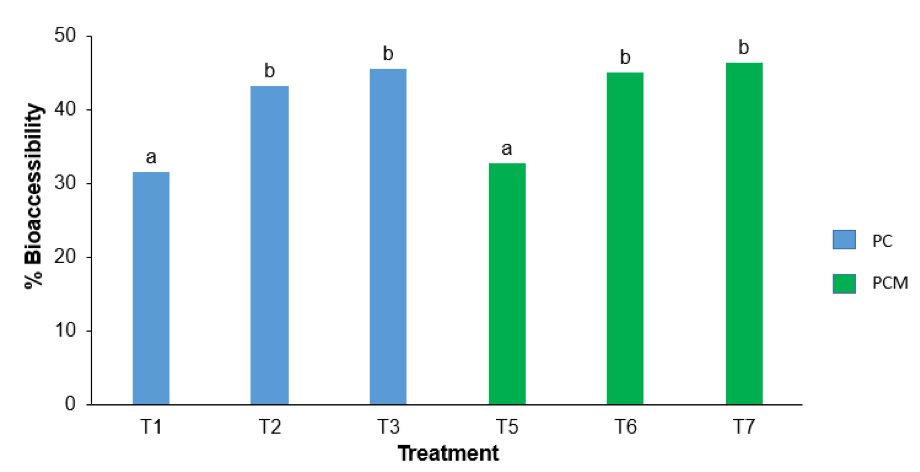 |
|
The present work depicts the development of a SNEDDS system for the administration of insulin, in which an insulin complex was formed with enzymatically modified soy phosphatidylcholine, by means of the solvent elimination technique. In addition, sodium alginate and guar gum were added to this system to provide mucoadherence capacities and to increase insulin protection against gastric conditions. SNEDDS were developed from mixtures of surfactant, co-surfactant and oil phase: Cremophor EL, Labrafil M1944CS and Lauroglycol FCC, respectively: obtaining particle sizes between 27.36-50.53 nm and monomodal distribution. Mucoadhesives were added by orbital agitation and particle sizes between 53.1-83.2 nm were obtained. Finally, nanoemulsions were submitted to an in vitro gastric simulation system, were insulin bioavailability was increased to 46.3% in systems that included mucoadhesive coating. These results show that the developed systems can possibly be used for the administration of insulin by oral route as a potential non-invasive treatment for diabetes.
Keywords: Diabetes, insulin, modified phosphatidylcholine, mucoadhesive polysaccharide, nanoemulsions.
|
|
 |

